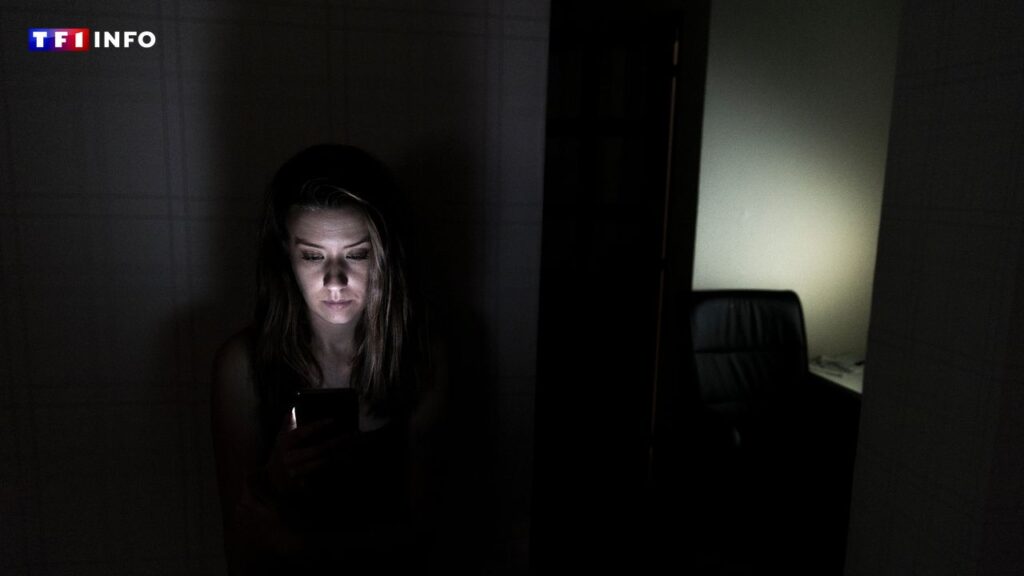This Tuesday, Sabrina Agresti-Roubache called on parents to show authority to fight against youth delinquency.
The Secretary of State for Citizenship notably recommended that parents “search the telephone or the room”.
Advice that contravenes children's right to privacy.
Follow the full coverage
The information scrutinized
She wanted to give her opinion of “Mom”, it especially surprised the jurists. While the government seeks to combat youth delinquency, the Secretary of State for Citizenship has called on parents to demonstrate “of authority”. “Regain confidence in yourself”launched Sabrina Agresti-Roubache this Tuesday, April 23 on the set of France 2, before ensuring that the parents have “the right to search the telephone, to look for something in the room”. The government member even went further, confiding that she was “struck” by the idea that “a teenager has a private life”.
The right to privacy begins at birth
However, no offense to the Secretary of State, this is a legally established right. All the lawyers we contacted cite article 9 of the Civil Code, which protects the “respect for privacy” For “all French”regardless of his age. “The minister's exit goes against the Civil Code and a law passed by this same government on February 19”, underlines lawyer Anne-Sophie Laguens, lawyer at the Paris bar.
Speaking to TF1info, this specialist in family law points out that this text, initially proposed to protect the privacy of children on social networks, establishes the duty of parents to respect and protect the privacy of their child. . A right which has even been enshrined for more than 30 years in the International Convention on the Rights of the Child, of which France is a signatory.
-
Read also
DECRYPTION -Neither lax nor severe: what if positive authority was good education?
However, this right has a limit. “It must be combined with the necessary protection of minors by their parents.”explains lawyer Marion Ménage. “Adolescent privacy is at the crossroads between two contradictory interests: on the one hand that of private life, which begins at birth, and on the other side parental authority.” also confirms lawyer Alexandre Archambault.
Behind this notion, we find all the rights and duties that parents have with regard to their minor child. This is why the digital lawyer describes the “crest line” on which parents must progress. And that we find written in the texts. Article 16 of the International Convention on the Rights of the Child thus protects the private life of the child, in the home or in correspondence, from any “arbitrary or illegal interference”. Idem in the Civil Code, recalling that parents exercise their parental authority by involving the child “to decisions that concern him, according to his age and degree of maturity”.
“An expression which shows that the law specifies that it is a case-by-case assessment”notes Alexandre Archambault, that parental authority “evolves as the child gains autonomy”. For Marion Ménage, it is also “the age of the minor” which should allow “to come and measure whether an invasion of privacy is proportionate”. “A parent who monitors the phone of their 12-year-old child will seem more appropriate and justified than for a 17-year-old”notes the criminal lawyer in Val-d’Oise. “There is a happy medium that must be found between digging through the phone and respecting privacy at all costs”, corroborates Anne-Sophie Laguens. Speaking to TF1info, the lawyer at the Paris bar cites concrete examples of parents brought before the judge for having been too present in the child's private or digital life.
The invasion of the minor's privacy must be justified and measured.
The invasion of the minor's privacy must be justified and measured.
Marion Ménage, lawyer specializing in family law
In the opinion of the three lawyers interviewed, it is therefore up to the parent to find this balance. Precisely as the CNIL points out. In an opinion delivered on July 31, 2023 on the question, the commission responsible for information technology and freedoms describes the “fair balance” what must the guarantors of authority find between “parental control and respect for the rights of minors. At any rate, “normally, we cannot impose access to the telephone on a teenager, except for strict protection reasons”, concludes Me Laguens, citing as an example cases of online harassment. “The parent exercises the rights of his child, but he is only an agent and he acts in the interest of the child and not his own”summarizes Alexandre Archambault.
Contrary to what the minister claims, things are far from being that simple. But she does not seem to be the only one to forget the teenager's right to have his private life. Although this principle is supported by several texts, when it comes to children, it is “little recognized in practice and too often flouted”, as the Defender of Rights very recently noted. In a report published at the end of 2022, he already regretted at the time the lack of “clarification as to the contours of the notion of private life” for kids.
Do you want to ask us questions or submit information that you do not believe is reliable? Do not hesitate to write to us at [email protected]. Find us also on X: our team is present there behind the account @verif_TF1LCI.

